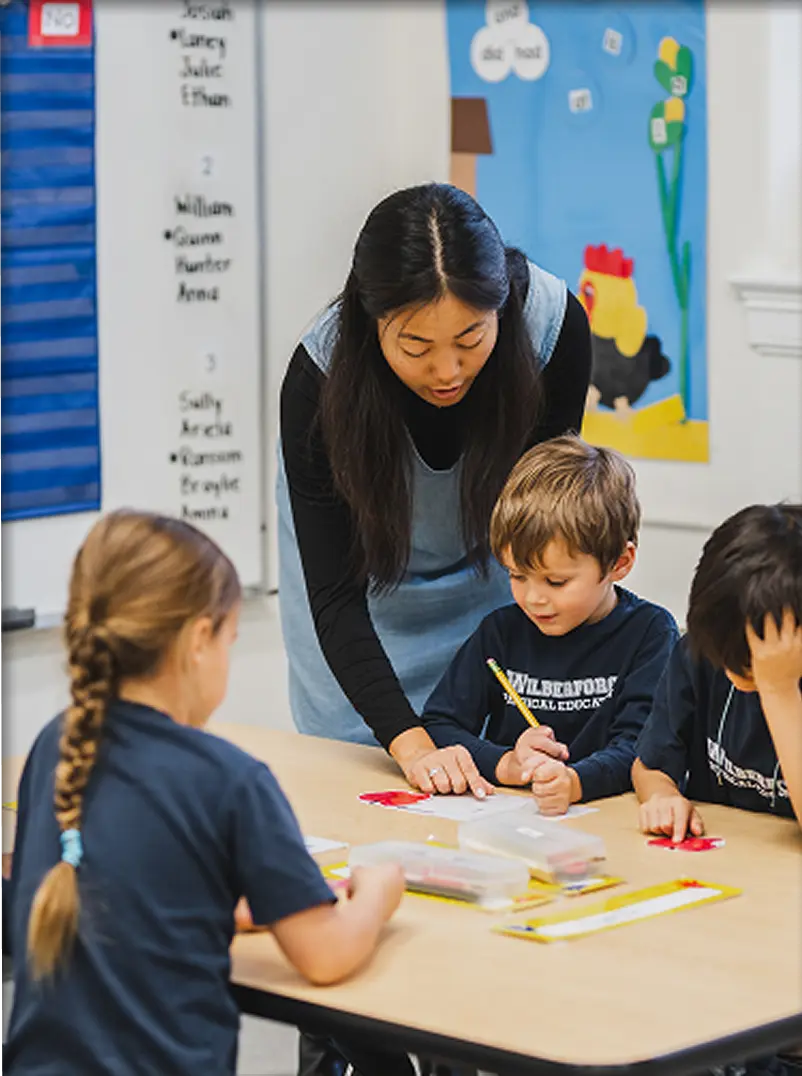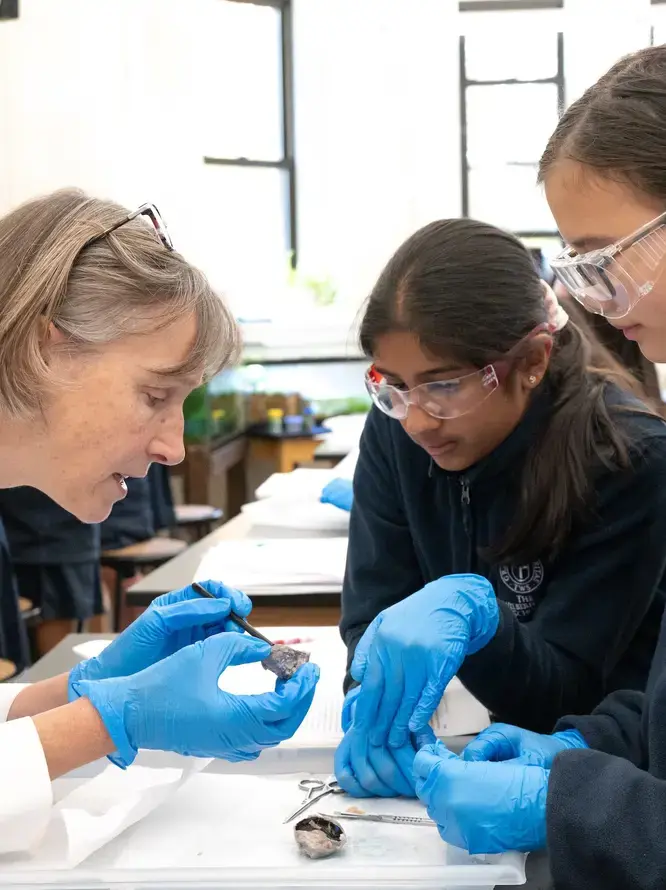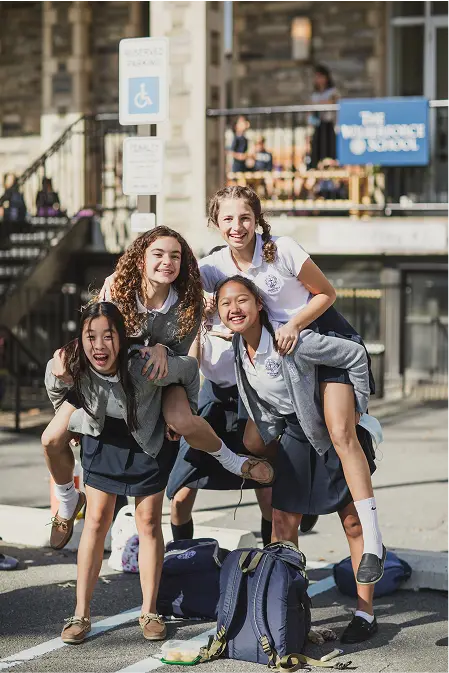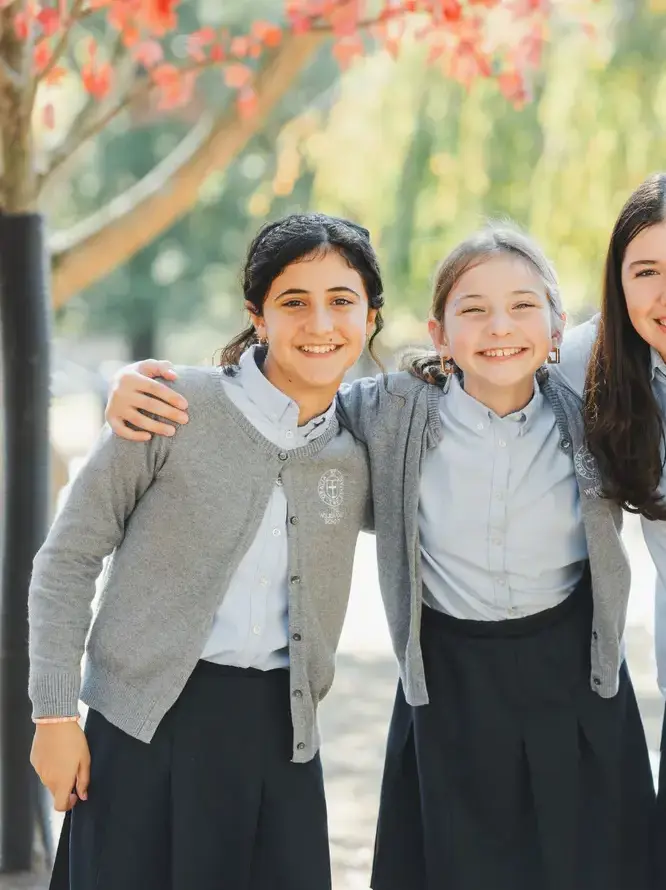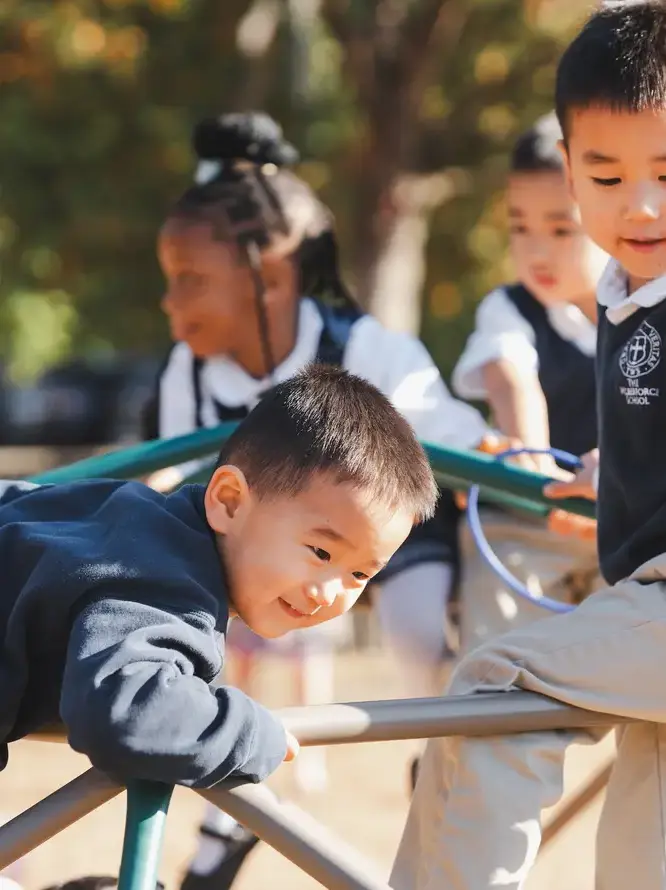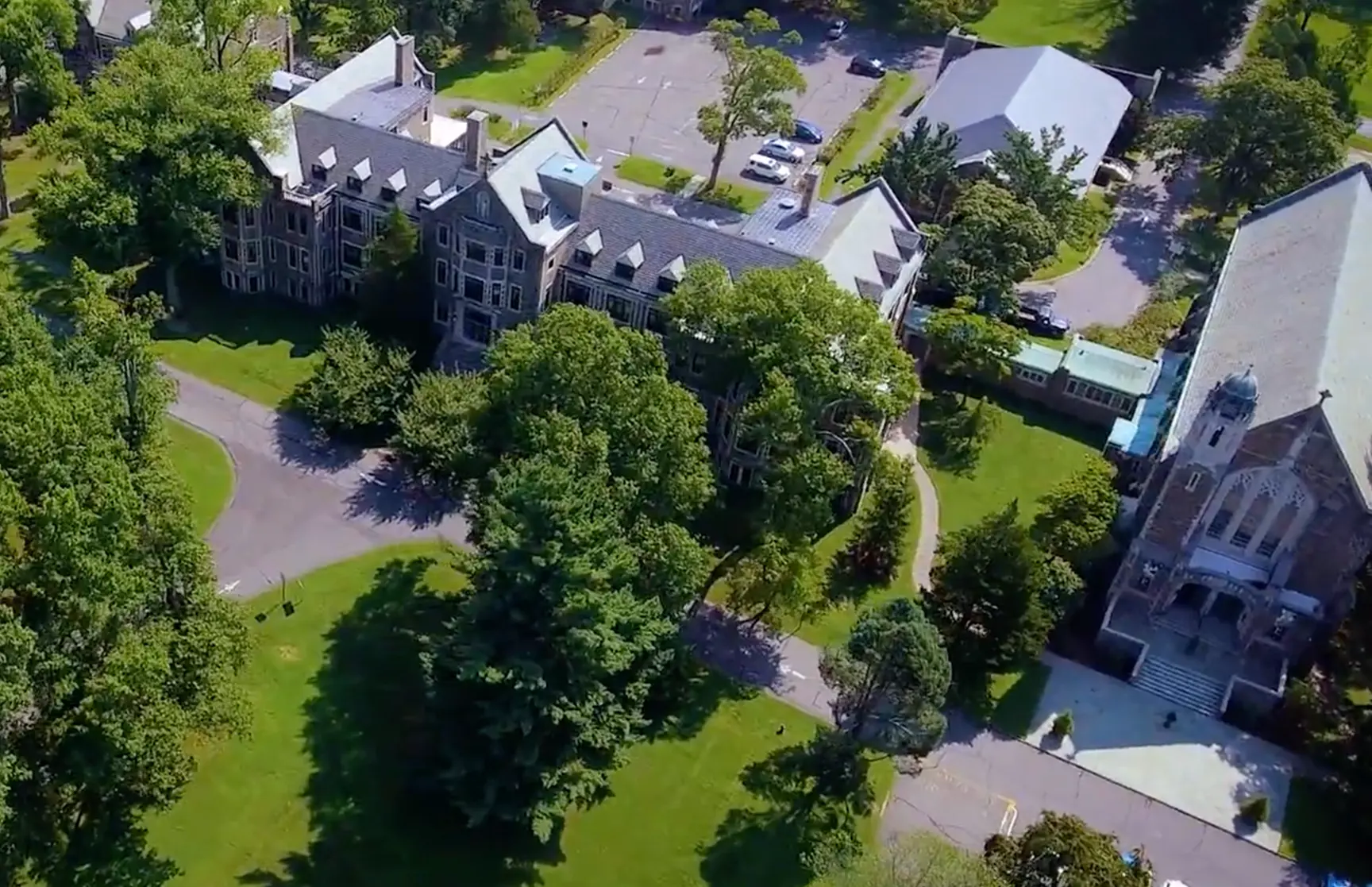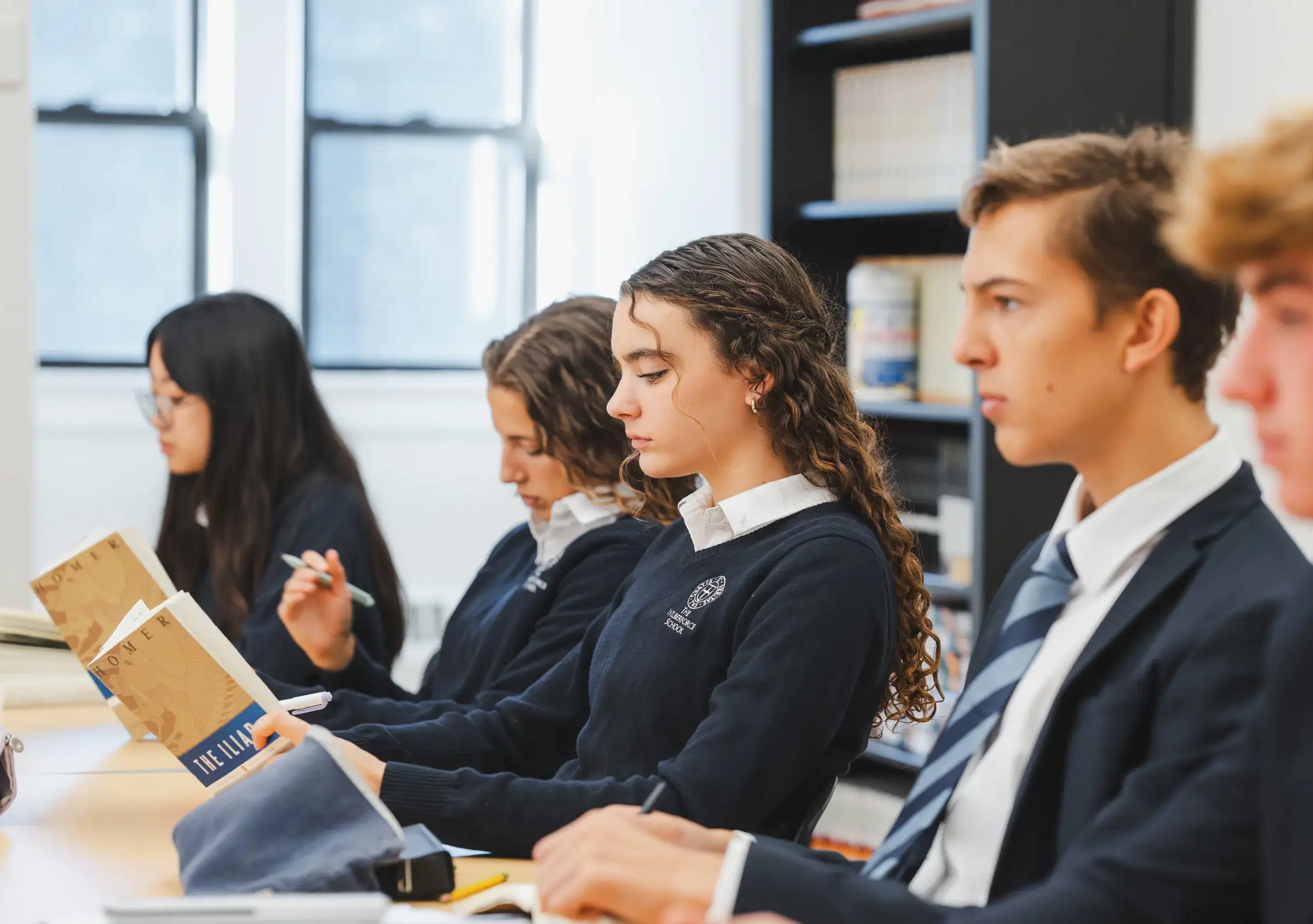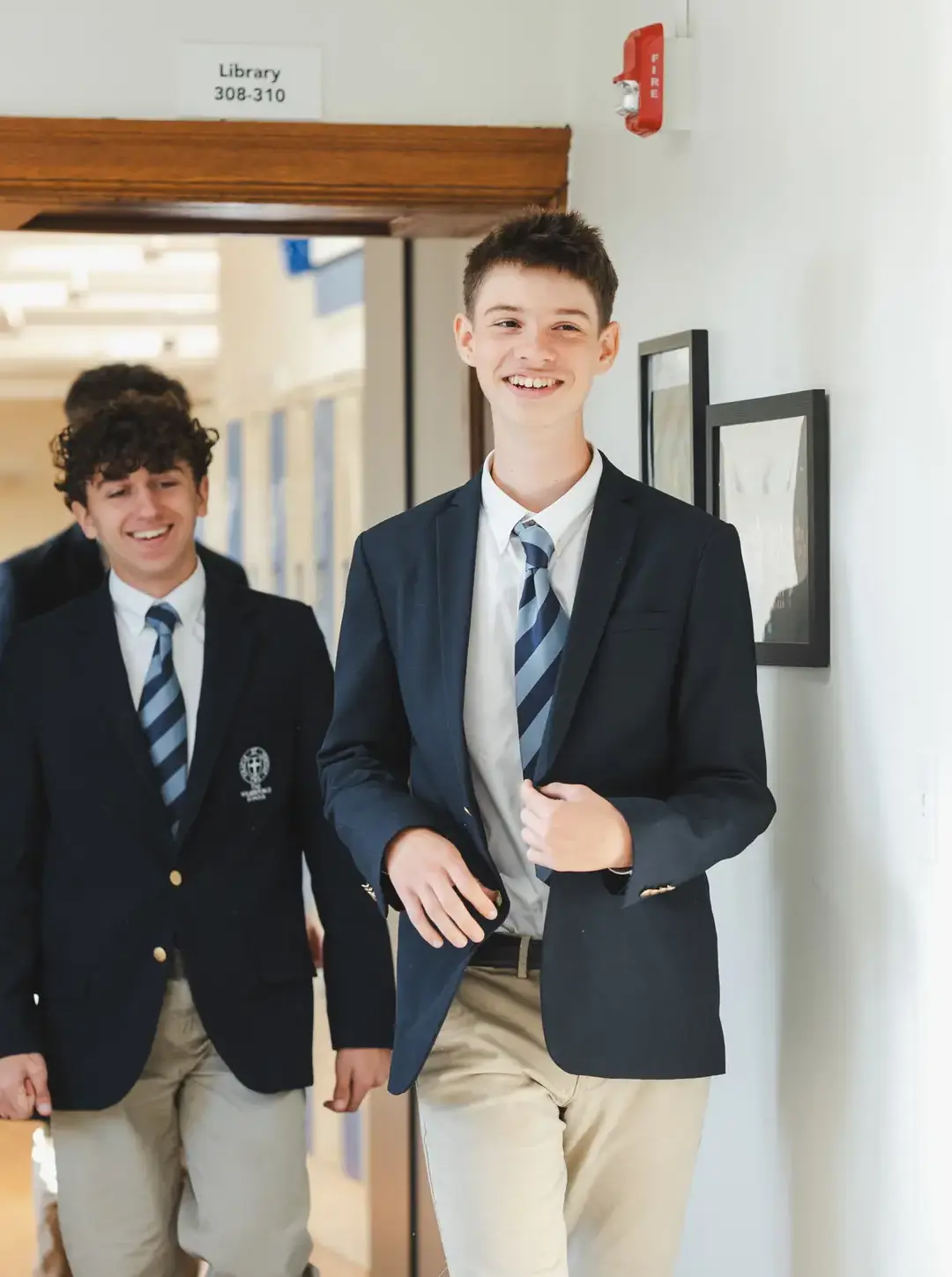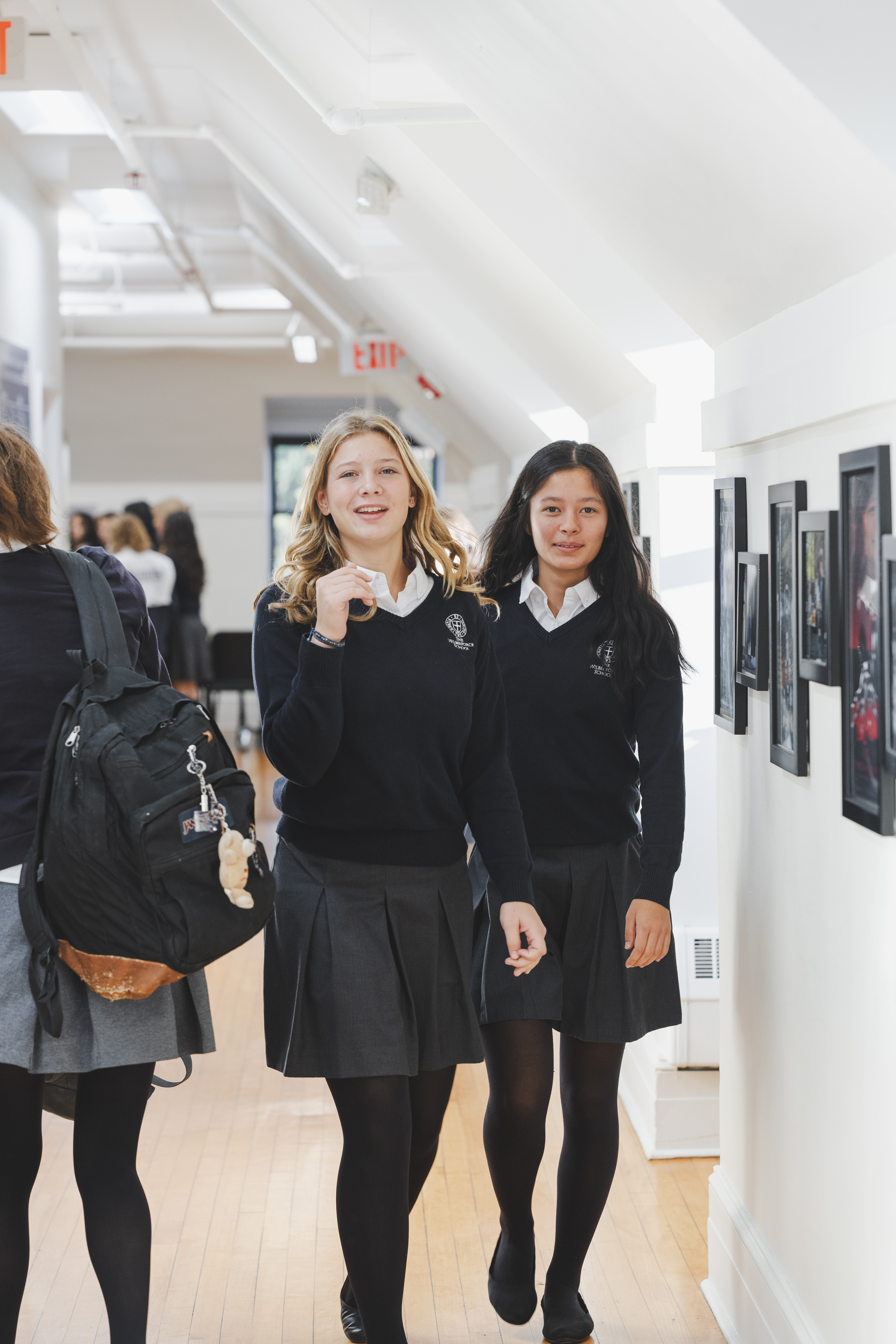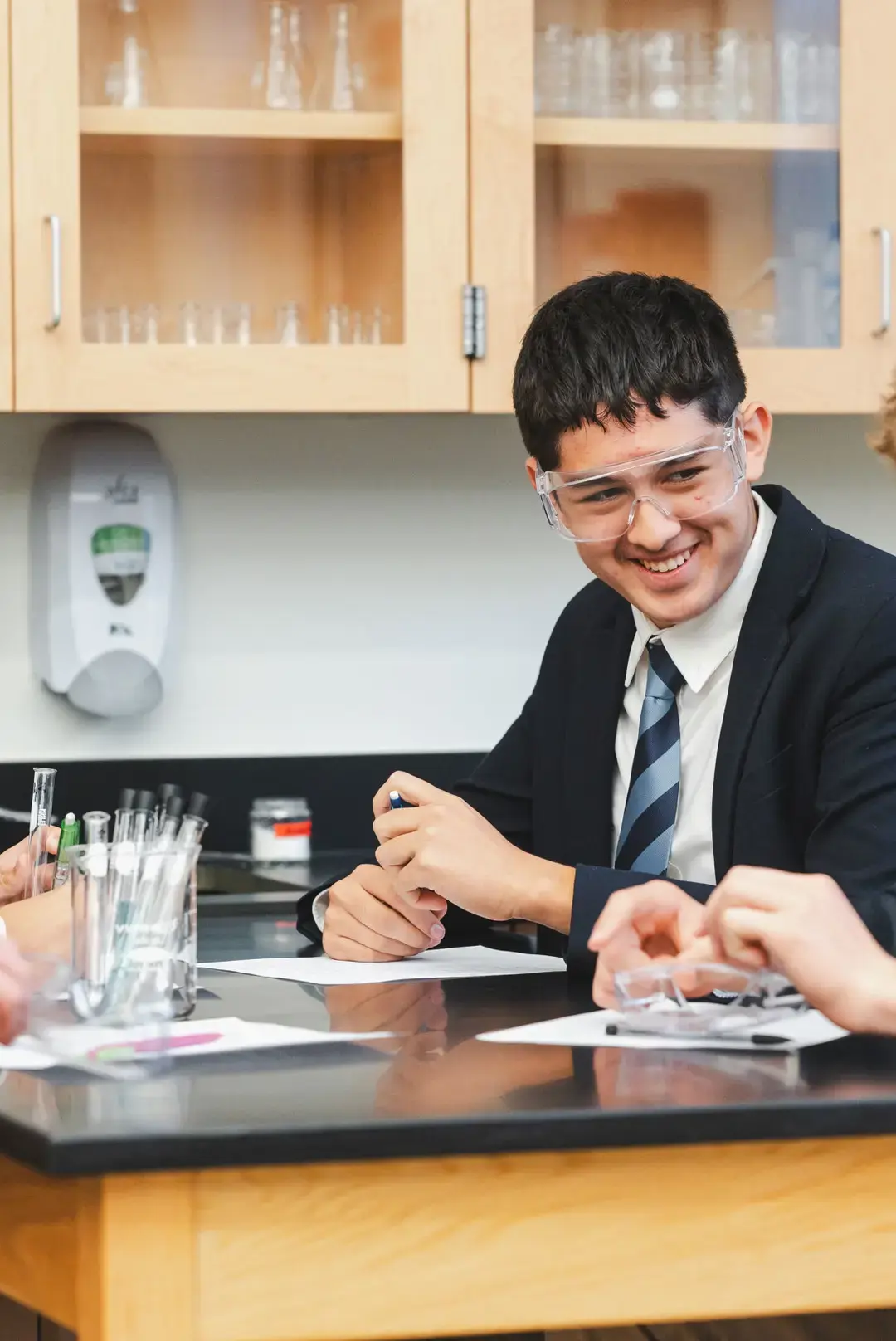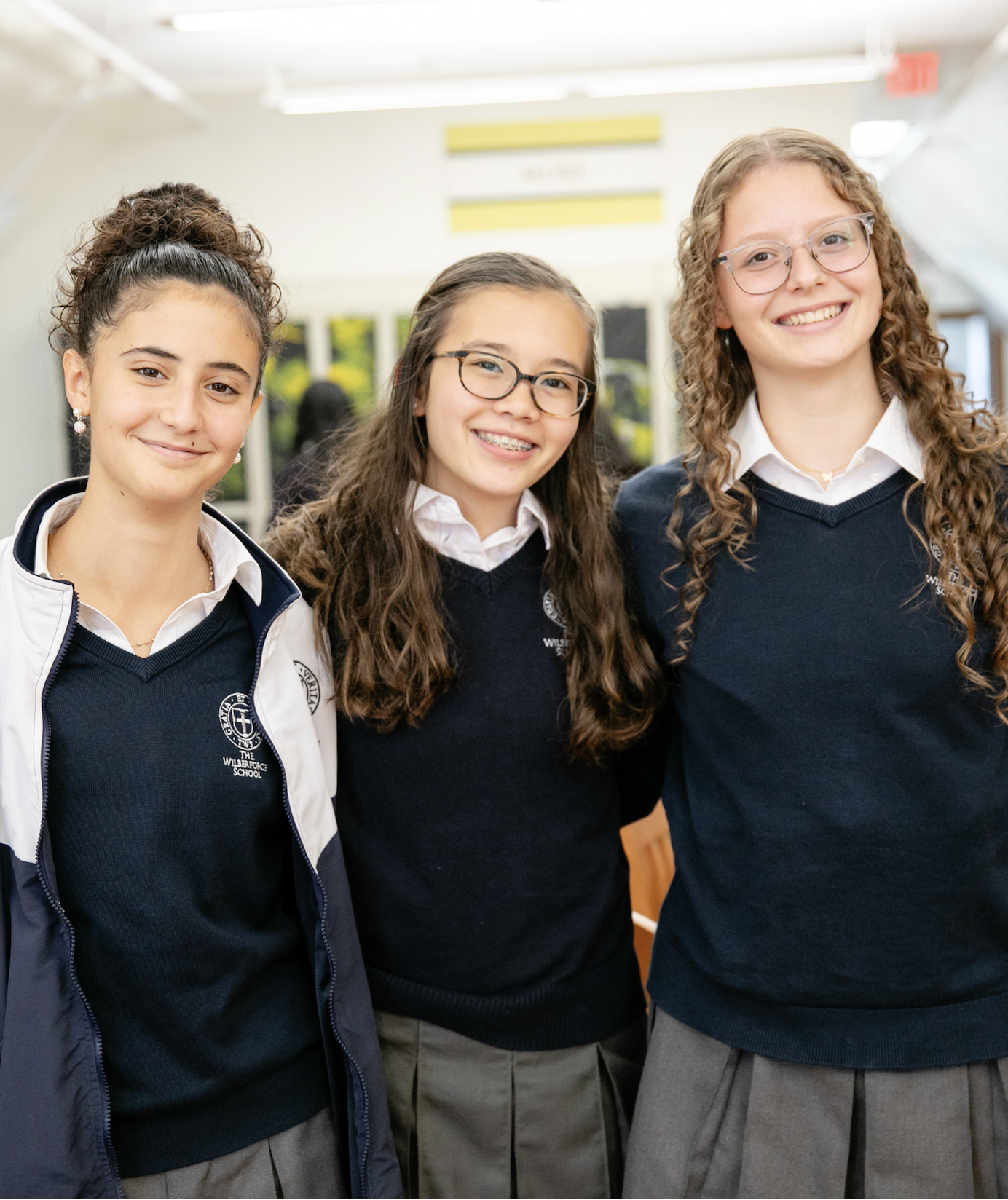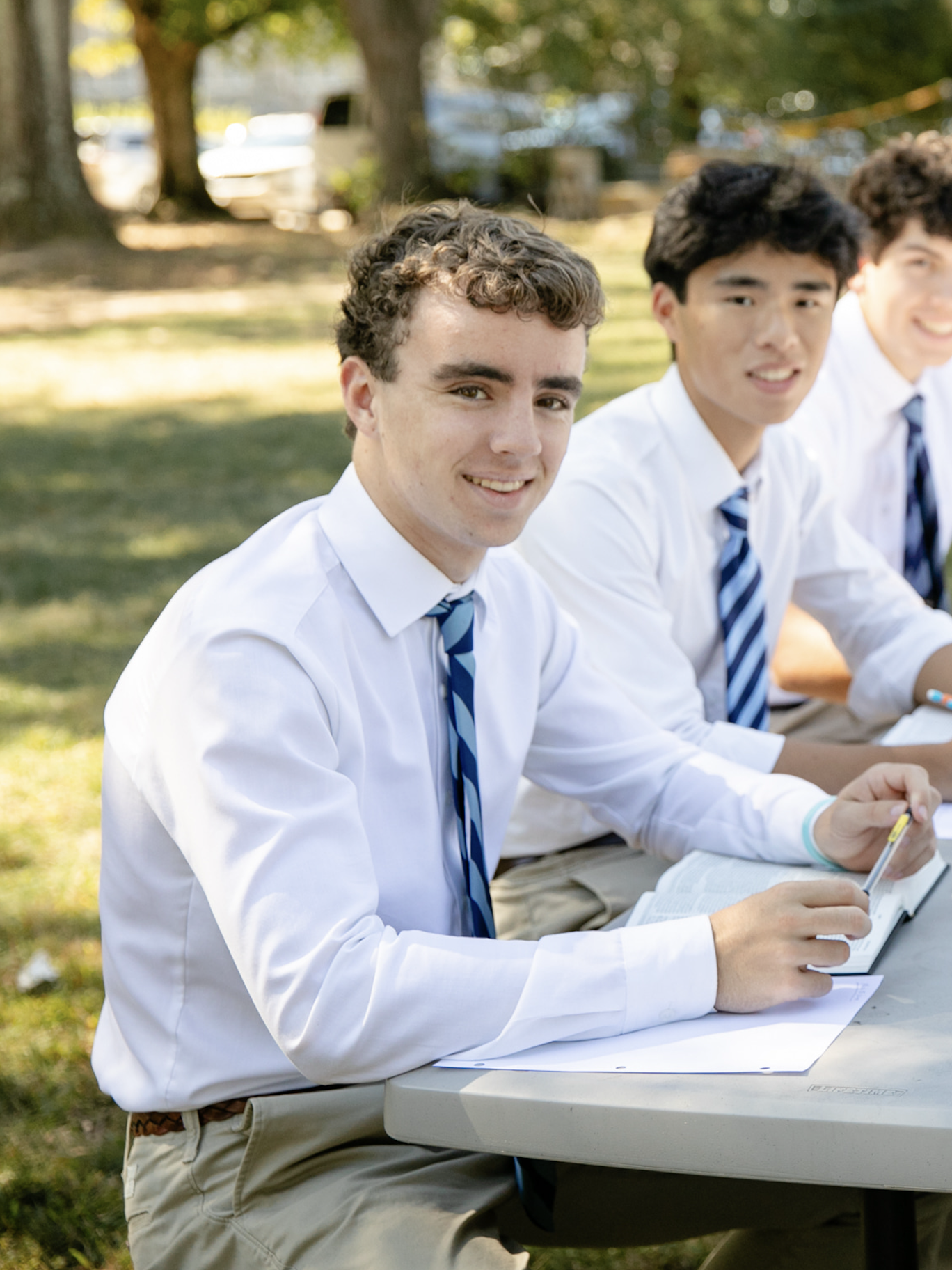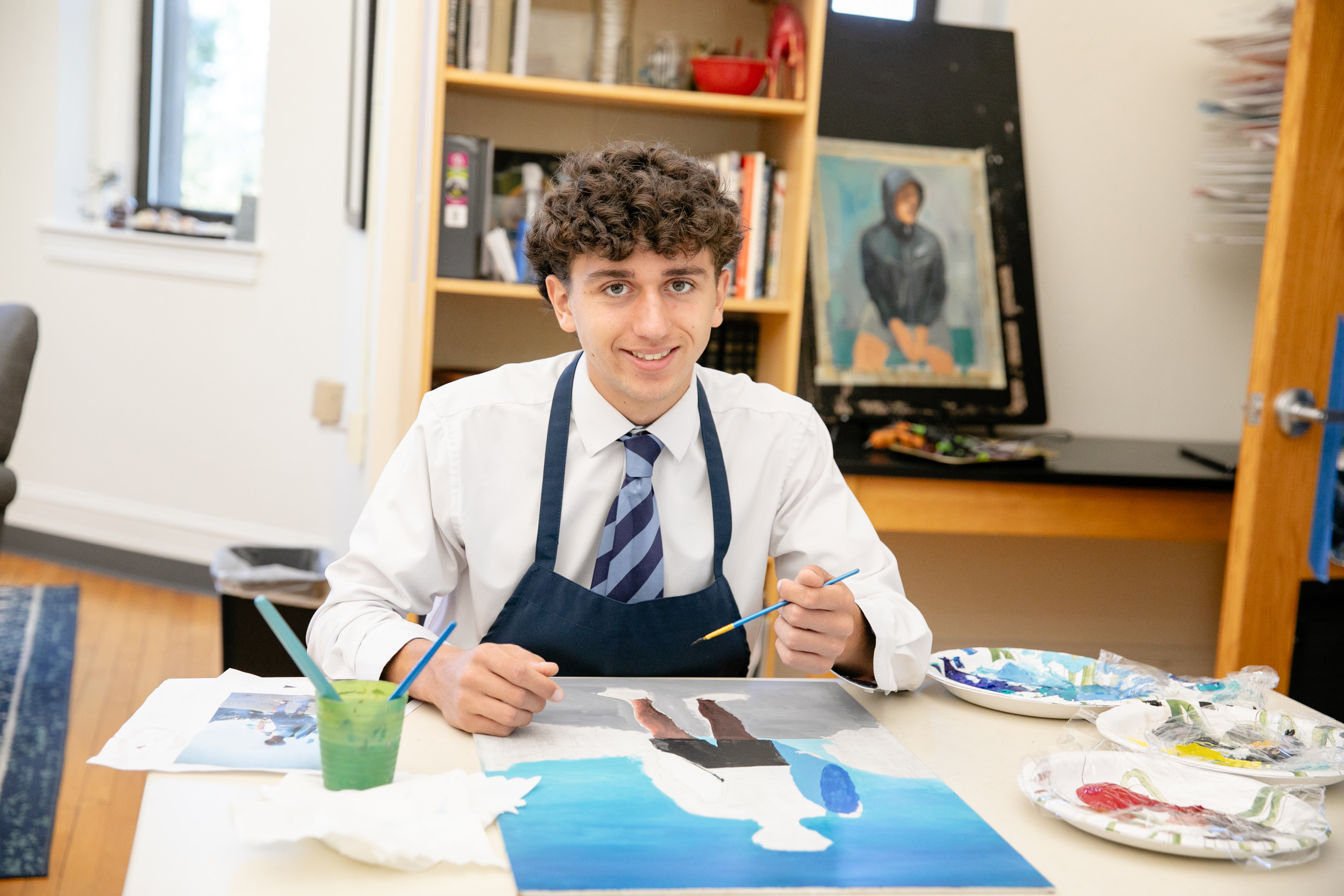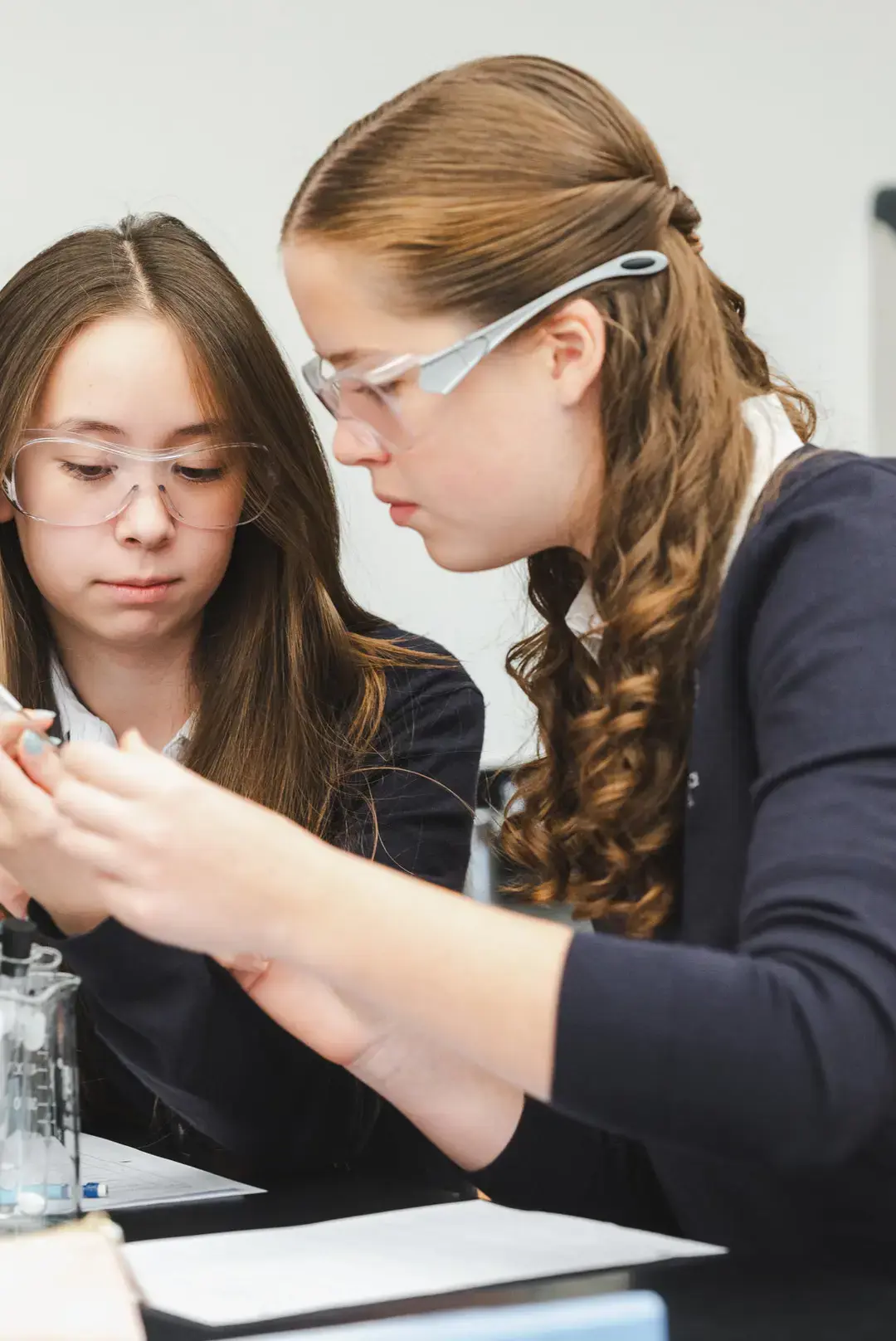UPPER SCHOOL
9th-12th Grades
Our Mission
The mission of the Wilberforce Upper School is to impart basic ordered knowledge about the world and to train students in foundational intellectual skills and qualities of mind and heart, so that they might be of use to God in the wise care and governance of his creation and in the building of His kingdom. We accomplish this by establishing a culture marked by the discovery of truth, the practice of goodness, the creation of beauty, the development of intellectual and aesthetic habits of the mind, and cultivation of servant leadership. The Wilberforce Upper School is a community of learners engaged in the rigorous exploration of reality, the free and disciplined exchange of ideas, and active participation in the fine arts.
At Wilberforce, we value face-to-face interactions and community learning. This is practiced through our no-cell-phone policy and using technology only in ways that are proven to enhance learning. In today's technology-saturated environment, this practice sets our private high school apart.
We invite you to explore our private high school in person. We think you will find that The Wilberforce Upper School offers a culture of learning that stands out as exceptional in the Princeton area.
The educational method of The Wilberforce Upper School is designed to encourage the active involvement of the student in the learning process. Rather than receiving knowledge passively, each student must actively apprehend concepts and relationships. This education, therefore, is both disciplined and demanding; it is, moreover, effective in unlocking the potential of each student.
Wilberforce offers a compelling and unique high school culture: faculty and students in community, together pursuing faith, scholarship, and friendship.
| Intentional Faculty Led Culture |
|---|
| All faculty are deeply committed Christians. The faculty creates a genuine and richly Christian learning environment. The faculty model for students how to live, think, and relate to others as mature Christians, and they invite students to join them. |
| Morning Prayer |
| Each day starts with morning prayer. A Psalm or other scripture is read; a faculty member or a student shares a devotional thought; the community members pray for one another. |
| A Co-Educational School with Single-Sex Classes |
| Some of the classes are conducted in a single-sex environment. This removes a great deal of distraction, pressure, and self-consciousness from the classroom interaction, and provides a safe place to express ideas and take risks. But the co-ed element is still there, creating the best of both worlds. |
| Four House System |
| The first weekend of the school year, all Middle and Upper School students and faculty go on an overnight retreat together to induct new students into their house and forge lasting friendships and memories. The purpose of the house system is to build a culture of leadership, service, mentorship, and joy. Each house serves as a family within the broader school community which strengthens friendships across grade levels. |
| William Wilberforce |
| William Wilberforce was a leading member of the British Parliament in the early 1800’s who, prompted by his faith, led the campaign to abolish the slave trade in British Colonies and led countless other reforms of conditions for the poor, hospital care, asylums, refugees, penitentiaries, and schools. We take our namesake seriously and call our students to be mindful of the world they are in and God’s call for them in it. |
| Dual Enrollment |
See Dual Enrollment |
| Junior Projects |
See Junior Projects |
Curriculum
| Humane Letters |
|---|
|
In the Humane Letters seminar, a two-period course taken each of the four years of Upper School, students embark on an integrated study of literature, history, philosophy, and theology. Rather than read secondary texts and have teachers lecture them, students are engaged in reading and discussing original texts and source documents, and writing essays about issues that emerge from their study. Historical lectures frame and supplement the discussions. The Humane Letters seminars encourage students to understand and analyze the enduring principles of Western civilization through careful, integrated study of both history and great literature. Primary Text Student-Led Discussions Analytic Essays |
| Math & Science |
|
One of the hallmarks of the Upper School is an advanced math and science curriculum that enables students to enter into a two-year calculus, physics, and programming course in their junior and senior years. Students entering our private high school must demonstrate a solid understanding of algebraic principles in order to succeed in this curriculum. MATLAB What Makes MATLAB Unique:
|
| Fine Arts |
|
Fine Arts are an integral piece of Upper School curriculum. All students participate in a well-rounded education, including both the visual and performing arts in studio art, choral music, art history, and theatre. STUDIO ART Studio Art focuses on increasing visual literacy, developing a range of technical skills and establishing a solid conceptual foundation. Students focus on two-dimensional art and develop their knowledge of design, planning, and creative thinking. They conclude their study of studio art with the creation of an original art piece, influenced by their favorite artists and genres. CHORAL STUDIES In Choral Studies, students develop a healthy vocal technique, music theory and composition, and participate in ensemble performance. They also study 16th-century counterpoint and composition. ART HISTORY Art History surveys diverse forms of art, ranging from the prehistoric era to present. Students study various mediums including sculpture, architecture, and painting in order to recognize and describe timeless works of beauty. THEATER In Theater, students study acting, stage presence, technique, collaboration, and exploration. Students perform plays from Shakespeare’s corpus, and conclude with modern repertoire and performance. |
| Theology |
|
The Wilberforce School covers church history, biblical studies, and apologetics in Upper School theology courses. This framework is designed to impart an understanding of the church’s history and foundation, a strong biblical knowledge, appreciation of one’s own faith tradition, and the ability to articulate and discuss faith with others. HISTORY & CREEDS OF THE CHURCH High school students begin their four-year theology studies with History & Creeds of the Church, where they study the earliest creeds, such as the Apostles, Nicene-Constantinopolitan, and Chalcedonian, as well as the subsequent missionary movements of the church. Students interact with and discuss the importance of these creeds and their impact upon the church today, and conduct an independent study of their own faith tradition. OLD TESTAMENT The Old Testament course introduces students to the corpus of biblical literature. Students will examine various genres and interact with significant themes from the Old Testament, including the fall, the promise of the Messiah, and the formation of God’s people Israel. This class also addresses textual critical issues. Students also study contemporaneous Ancient Near Eastern literature and read sections from the Apocrypha. NEW TESTAMENT The New Testament course continues the study of the biblical corpus, where students read the entire New Testament and focus on Jesus as the fulfillment of Old Testament expectations. Students also study the cultural milieu of the New Testament world and discuss the formation of the New Testament canon. APOLOGETICS Upper School Theology ends with an Apologetics course, which is designed to allow students to engage other religions and worldviews from a Christian perspective. Students learn to respectfully interact with perspectives different from their own as they discover the validity and credibility of the Christian faith, while simultaneously cultivating wisdom and humility in their interactions with others. |
Curriculum Overview
| Upper School Required Courses | ||||||
|---|---|---|---|---|---|---|
Humane Letters2 hours / day |
Math |
Science and Technology |
Foreign Language |
Fine Arts |
Theology Seminar |
|
| 9th | American History and Literature | Geometry Pre-Calculus | Biology | Advanced Latin or Classical Roots of the English Language |
Art I Choral Music |
History and Creeds of the Church |
| 10th | European History and Literature | Pre-Calculus AB or BC | Chemistry | Spanish I or Mandarin I |
Art II Choral Music |
Old Testament |
| 11th | Ancient and Early Church Studies | Calculus A or Calculus AB | Physics I and MATLAB | Spanish II or Mandarin II |
Choral Music or Art III Theater I |
New Testament |
| 12th | Western Literature, Political Theory and Philosophy | Multivariable Calculus or Statistics | Physics II or Chemistry II | Spanish III or Mandarin III |
Choral Music or Art IV Theater III |
Theology Seminar (Apologetics) |
Credits |
8 | 4 | 4 | 4 | 2 | 2 |

